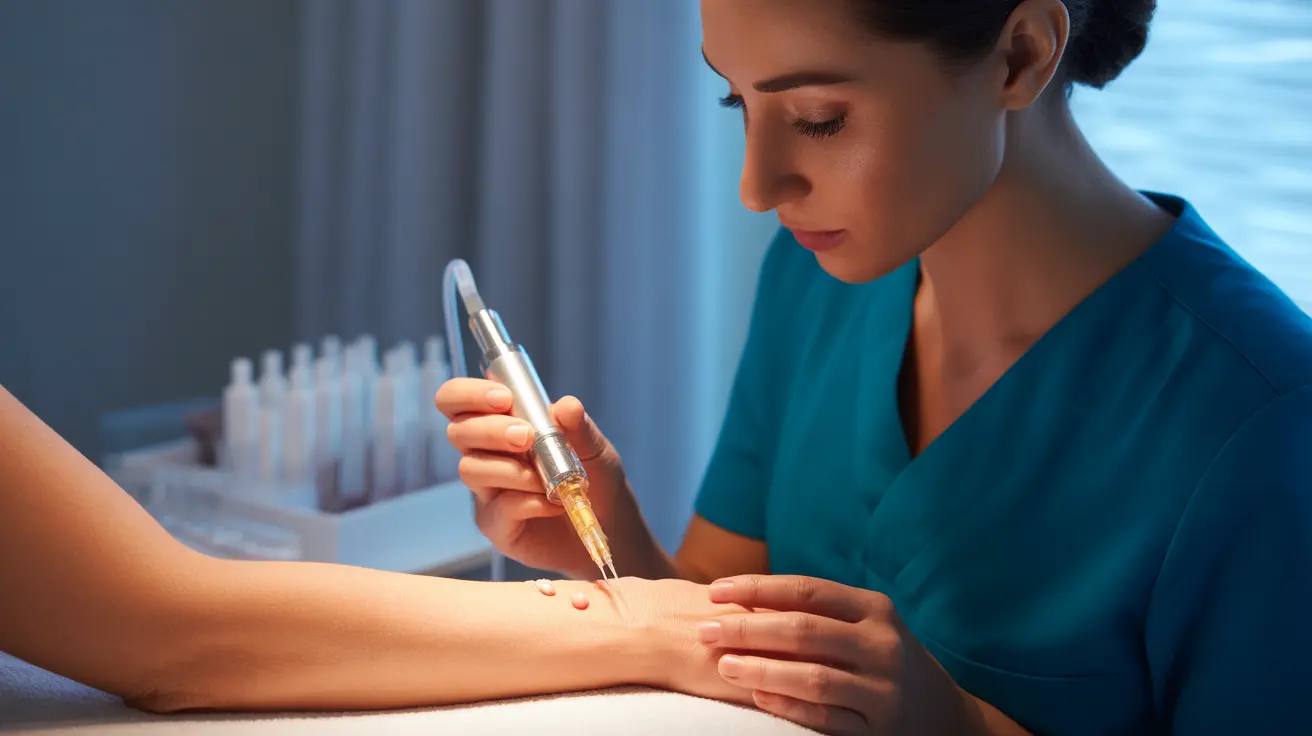Mesotherapy is a minimally invasive cosmetic treatment that involves injecting specialized solutions directly into the mesoderm, the middle layer of skin. This innovative procedure has gained popularity for its potential to address various cosmetic concerns, from fat reduction to skin rejuvenation. Understanding how mesotherapy works and what to expect can help you make an informed decision about this treatment option.
What is Mesotherapy and How Does It Work?
Mesotherapy uses a combination of vitamins, minerals, amino acids, and other beneficial compounds injected through micro-needles into specific target areas. The treatment works by stimulating the mesoderm, encouraging natural healing processes, and promoting the breakdown of fat cells in treated areas. These specialized solutions can be customized based on individual needs and treatment goals.
The procedure typically involves multiple small injections administered directly into problem areas. These injections can help improve circulation, reduce inflammation, and stimulate collagen production, potentially leading to improved skin texture and reduced fat deposits.
Common Treatment Areas and Applications
Mesotherapy can be used to address various cosmetic concerns across different body areas:
- Face and neck (for skin rejuvenation and anti-aging)
- Abdomen and flanks (for fat reduction)
- Thighs and buttocks (for cellulite treatment)
- Scalp (for hair loss treatment)
The Treatment Process
Before Treatment
Prior to receiving mesotherapy, patients undergo a consultation to determine their suitability for the procedure. During this assessment, medical history is reviewed, and treatment goals are discussed to create a personalized treatment plan.
During the Procedure
The actual treatment typically takes 30-60 minutes, depending on the area being treated. The practitioner will clean the treatment area and may apply a topical numbing cream for comfort. Multiple small injections are then administered using very fine needles.
Recovery and Aftercare
Recovery from mesotherapy is generally quick, with most patients able to resume normal activities immediately. However, following proper aftercare guidelines is crucial for optimal results and minimal side effects:
- Avoid intense physical activity for 48 hours
- Stay hydrated and maintain a healthy diet
- Protect treated areas from sun exposure
- Avoid applying pressure or massage to treated areas
- Follow any specific aftercare instructions provided by your practitioner
Frequently Asked Questions
What are the most common side effects and risks of mesotherapy for skin and body treatments?
Common side effects include temporary swelling, bruising, and mild discomfort at injection sites. More serious risks, though rare, can include infection, irregular contours, and allergic reactions. Working with a qualified healthcare provider helps minimize these risks.
How does mesotherapy work to reduce fat and improve skin texture, and what ingredients are typically used?
Mesotherapy works by delivering active ingredients directly to target areas. Common ingredients include phosphatidylcholine for fat reduction, hyaluronic acid for hydration, vitamins for skin health, and various peptides for collagen stimulation. These compounds work together to break down fat cells and improve skin quality.
Is mesotherapy a good alternative to liposuction, and what are the main differences between these procedures?
While mesotherapy can provide fat reduction, it's generally more suitable for smaller areas and mild to moderate fat deposits. Liposuction is more invasive but can remove larger amounts of fat in a single session. Mesotherapy typically requires multiple sessions but offers shorter recovery time and lower risks.
How long does recovery take after mesotherapy, and what aftercare steps can help minimize side effects?
Recovery typically takes 24-48 hours for minor side effects to subside. Avoiding sun exposure, staying hydrated, and following post-treatment care instructions can help minimize side effects and optimize results. Most patients can return to normal activities immediately after treatment.
Who is a good candidate for mesotherapy, and are there any health conditions that make the treatment unsafe?
Ideal candidates are healthy adults seeking modest improvements in body contouring or skin quality. The treatment may not be suitable for pregnant or nursing women, people with autoimmune conditions, diabetes, blood clotting disorders, or those taking certain medications. A thorough medical evaluation is necessary to determine candidacy.




